When you visit the eye doctor for a routine eye exam, the doctor looks at many factors to get a feel for your overall health and eye conditions. There is a lot more happening than most patients realize – more than reading the letters on a wall chart.
This full range of procedures and testing is vital to measure your vision and identify potential treatments. Our team at EyesNY can assist with all diagnostic and testing procedures you need to maintain good vision and healthy eyes.
Specific tests are typically included in a comprehensive eye exam, with additional testing options available when the eye doctor identifies certain signs of eye problems.
Standard testing used during eye exams include:
While it’s essential to identify the accurate prescription if you need glasses or contact lenses, the prescription isn’t the only purpose of an eye exam.
It’s also essential for an eye doctor to look for “silent” eye problems that could result in vision loss, including:
Most eye exams take between 30 – 60 minutes. Factors that can increase the necessary time for an eye exam include whether your eyes need to be dilated and any additional testing procedures the doctor would like to use.
For example, if your eyes are dilated, you will visit the doctor at the start of the appointment. Once the dilation drops are put in the eyes, you must wait for up to 30 minutes so the pupils can open up. Then, the doctor will complete the rest of the examination.
Dilation appointments usually require the entire hour. Keep in mind that even though the exam only takes about an hour, the dilation effects can last for 4 – 6 hours after the appointment.
Also, people often need additional time in the office after their eye exam is over. For example, you might want to pick out eyeglass frames or have a contact lens fitting during the same visit—plan extra time for these activities after you are done with the eye exam.
During the examination, your eye doctor will want to know additional information about your overall health and other conditions that could be affecting your eyes. If you have any of the following risk factors, then it’s essential to share this information with your eye doctor:
Also, don’t forget to bring your current eyeglasses and contact lenses. If you are visiting a new eye doctor, the doctor will need information about your current prescription.
Each eye exam uses specialized equipment and tools, depending on the unique testing procedures necessary for your situation. Rest assured, knowing that everything is painless and safe.
The goal is for the eye doctor to determine your prescription (if needed) and look at the inside and outside of the eye for signs of illness or disease.
A comprehensive eye exam includes everything in a regular eye checkup, with additional testing and screening based on the findings in the earlier tests.
Additionally, the specific steps of the eye exam are determined based on your risk factors, age, and other underlying health conditions.
How long has it been since you visited an eye doctor for an exam and checkup? Whether your vision is changing or it’s time to see an eye doctor for a routine appointment, our team is here to assist. Contact us at EyesNY to book an appointment.
We provide comprehensive services for the entire family and offer multiple locations in the area. Call our office any time to learn more about available services.
Malta
658 Malta Ave., Ste 101
Malta, NY 12020
Phone: (518) 580-0553
Saratoga Springs
414 Maple Ave Ste 200
Saratoga Springs, NY 12866
Phone: (518) 580-0553
Clifton Park
1712 U.S. 9
Clifton Park, NY 12065
Phone: (518) 580-0553
Queensbury
535 Bay Road
Queensbury, NY 12804
Phone: (518) 580-0553
Troy
2200 Burdett Street Ste 206
Troy, NY 12180
Phone: (518) 580-0553
